The 'Obrim Fronteres Caravan' is fighting for human rights, travelling different territories and denouncing the human tragedy of forced migration. We talk about this with one of its activists.
How did the 'Obrim Fronteres Caravan Catalonia' emerge and why?
The 'Obrim Fronteres Caravan Catalonia' came to exist basically from a feeling of powerlessness in light of the human tragedy of forced migration and, in our case, because of the systematic violation of Human Rights within the EU. We believe we should improve the unequal relations around the world.
With the pictures of ships overflowing with people, others drowning or dying in multiple ways, the conditions at the wrongly-called refugee camps…a group of people decided to act and denounce these situations politically, by travelling to some of the hotspots at European borders. Something got us moving; I felt it was too hypocritical to criticise from our comfortable position at home.
How are you organized and what activities do you do?
There are two very different sides to what we do; on the one hand we function in an assembly in each territory, where decisions are made and the conclusions are then submitted to the state coordination, which is made up of representatives from each territory. These representatives have the support of the organizations they belong to (in Spain there are more than 80 supporting groups; in Catalonia almost 20 organizations).
The concrete activities of the caravan are direct action and political advocacy; press conferences, public denounces, demonstrations, performances, work on social media, supporting organizations and individuals…
In July you held the Italy 2018 solidarity caravan. Tell us about it
We travelled to Italy for several reasons; firstly, the route through the central Mediterranean is an important and dangerous gateway for people in movement. This country (Italy) is playing a key role in designing agreements on the externalization of borders with Libya and other countries where human rights are violated systematically. At the same time, the new Italian government is taking a hard-line anti-migration approach, fuelling racism and xenophobia in European societies, giving place to a surge in far-right political forces and movements. Salvini’s statements and his policy of closed ports are examples of this.
In Italy, among other actions, we denounced the return and readmission agreements with third countries where human rights are not respected. Nobody can be sent to a country where they might suffer torture, persecution or where they life may be at risk; this must be denounced out loud. Externalizing the borders and the return and readmission agreements not only benefit corrupt governments, but they also benefit the mafia linked to the political elites in these same countries, or those acting in connivance.
What lessons have you learnt from this experience?
I’d say lessons is taking it too far…I prefer referring to experiences...
The caravan is an experience of global personal growth. The caravan helps you to see you’re not alone, and also reminds you that there should be more of us. The caravan is a global solidarity experience.
Would Riace, in Italy, be a good example of a welcoming town?
We welcome the initiative taken in Riace to offer adequate housing to people arriving in the town and its policy to occupy empty houses to counter a model of housing speculation for tourism or economic purposes. We consider this is an interesting example that could be followed in other towns. However, it is also necessary for these people living in these houses to have the means to be independent and self-sufficient, and to foster cooperation among all. Migrants should be empowered, not just helped.
What actions would be needed to implement this model in Catalonia?
We encourage a solidarity network to be set up, using existing spaces, where solidarity groups and migrants can take part in collective decision making to meet the challenges described. We want everyone to be taken into account as political subjects with full rights, with universal access to register as citizens, with programmes to encourage occupation and cooperativism; awareness programmes and fostering intercultural relations in equal conditions and to fight Islamophobia, racism, xenophobia and other forms of discrimination and labour and social exploitation.
Do you believe there is a general awareness among the population of what is happening in the Mediterranean?
This is a complex question and we should question ourselves about the way we interact. People aren’t aware of the power they have. We tap into the Islamophobic, classist and sexist discourses without blinking an eye; therefore I find it hard to talk about raising awareness. Zygmund Bauman talks about liquid modernity to refer to the vacuity of everything; for instance, we see images of a dead mother and her child in an abandoned boat off the Libyan coast and then forget about it 30 seconds later without harbouring any feelings; this tragic event hasn’t permeated into our mind. We haven’t asked ourselves why and how. How is this possible?
Politicians hold a great responsibility in this; they focus on harnessing more votes and forget about humanity, about what makes us human. They are recklessly fan the flames of hate speech, scavenging for opportunities; they are racist, chauvinist…they will say whatever in public with no shame.
What can citizens do to stand up to this problem?
It is vital that we realize once and for all what they are doing to us; we mustn’t give in to the discourse of fear, the negative otherness…Once again, we are witnessing the resurging of neo-fascist ideologies that only aim to divide the popular classes and keep them silent. All that is personal is also political and many people are dead under the tranquil waters of the Mediterranean as a consequence of certain policies.
The key is to think about the future, the world we’ll be leaving for our children. Speaking in neoliberal terms, migration could save Europe from the economic collapse due to our aging population. Speaking in anti-militaristic terms, who wants a world at war? If we appeal to our emotions, what would happen if it was us and our children desperately trying to cross to the other shore of the Mediterranean?
What has been the funniest anecdote since you started the 'Obrim Fronteres Caravan Catalonia'?
There are many, but I especially remember how we were received by our fellow activists in Melilla, almost in tears saying “we’re not alone, thanks so much for coming”.

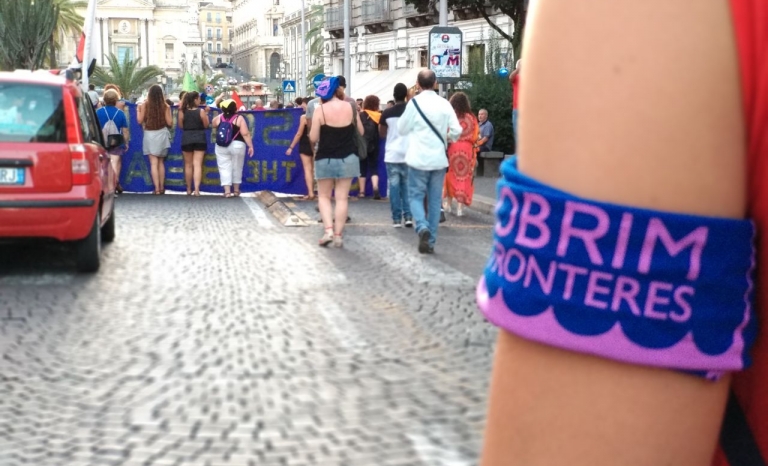
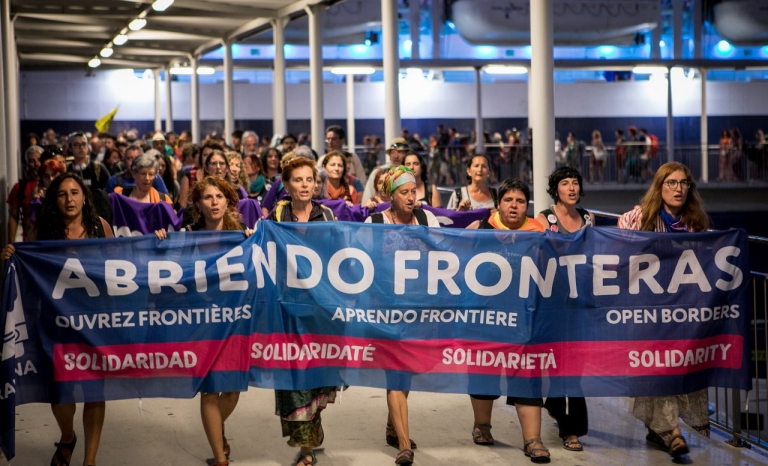
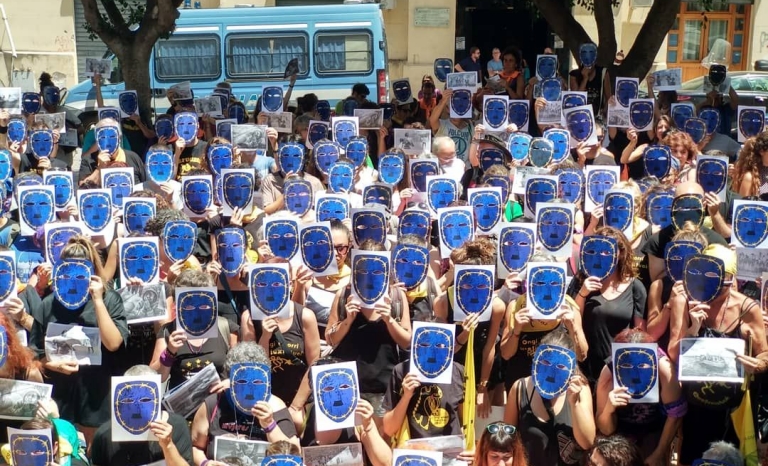
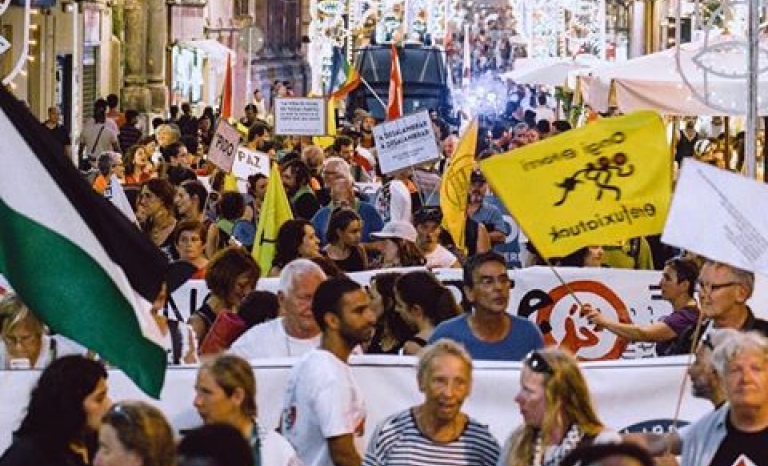
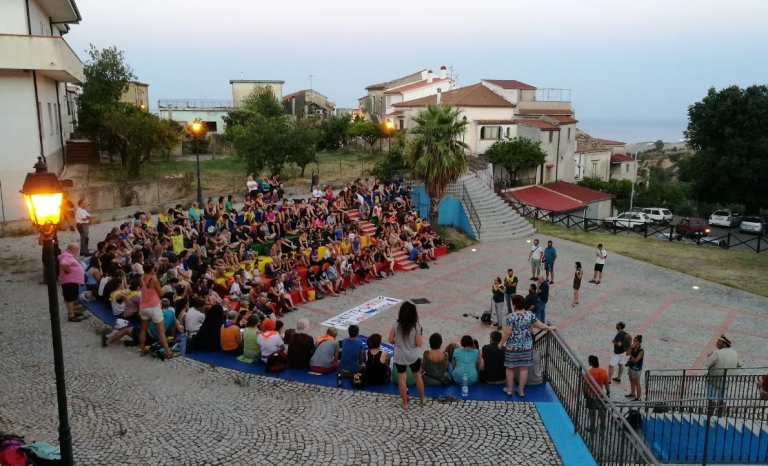
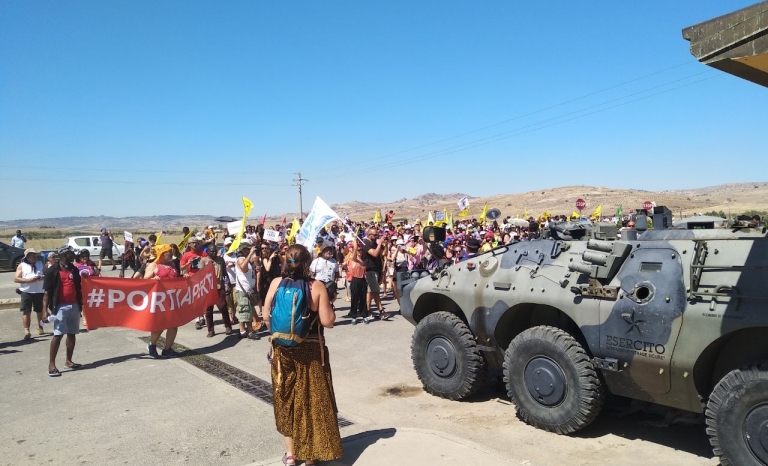
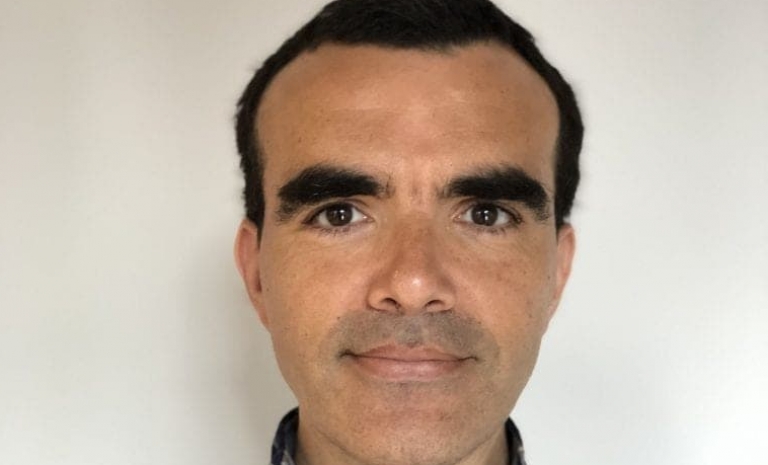
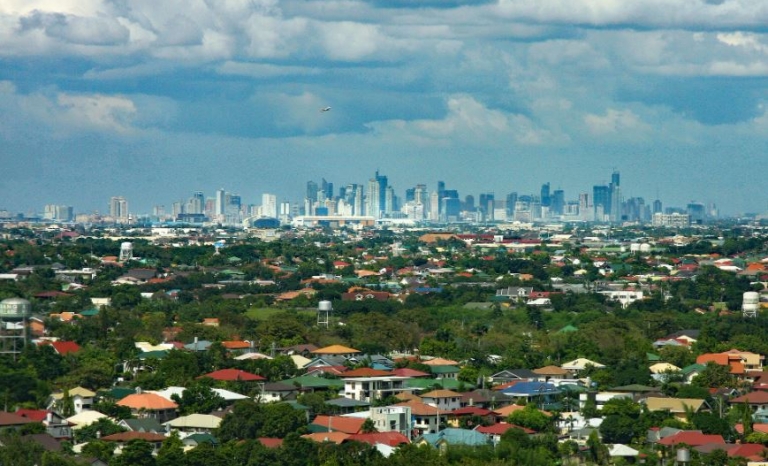
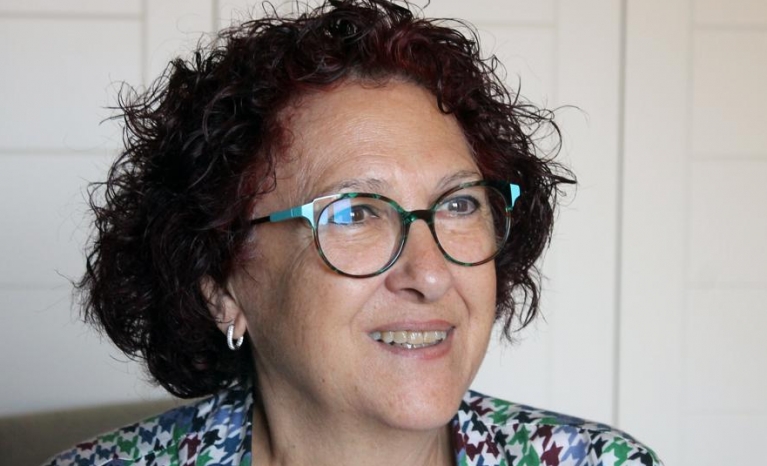
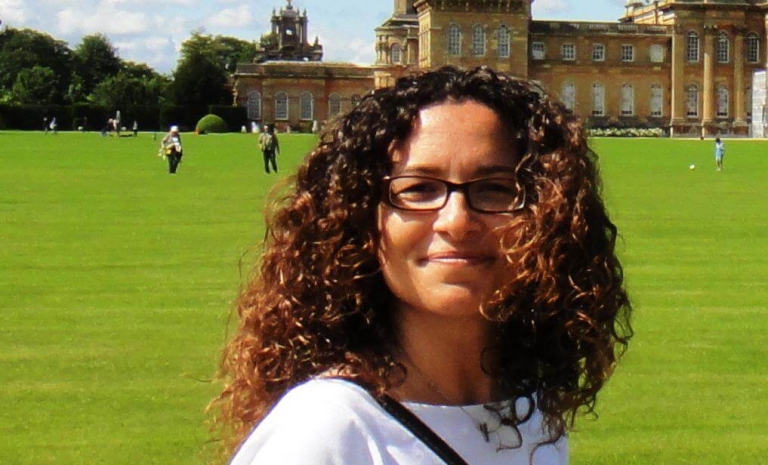



Add new comment